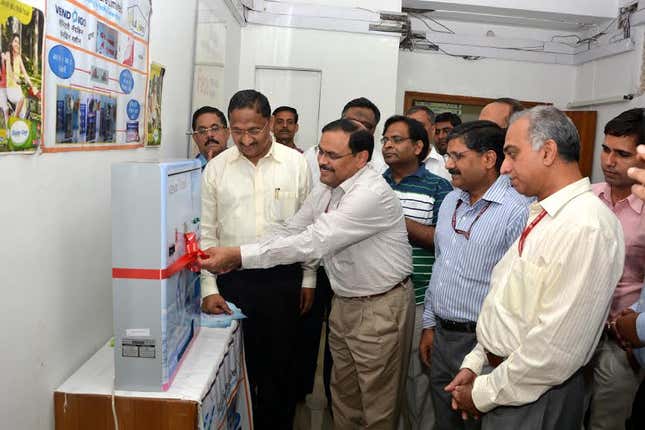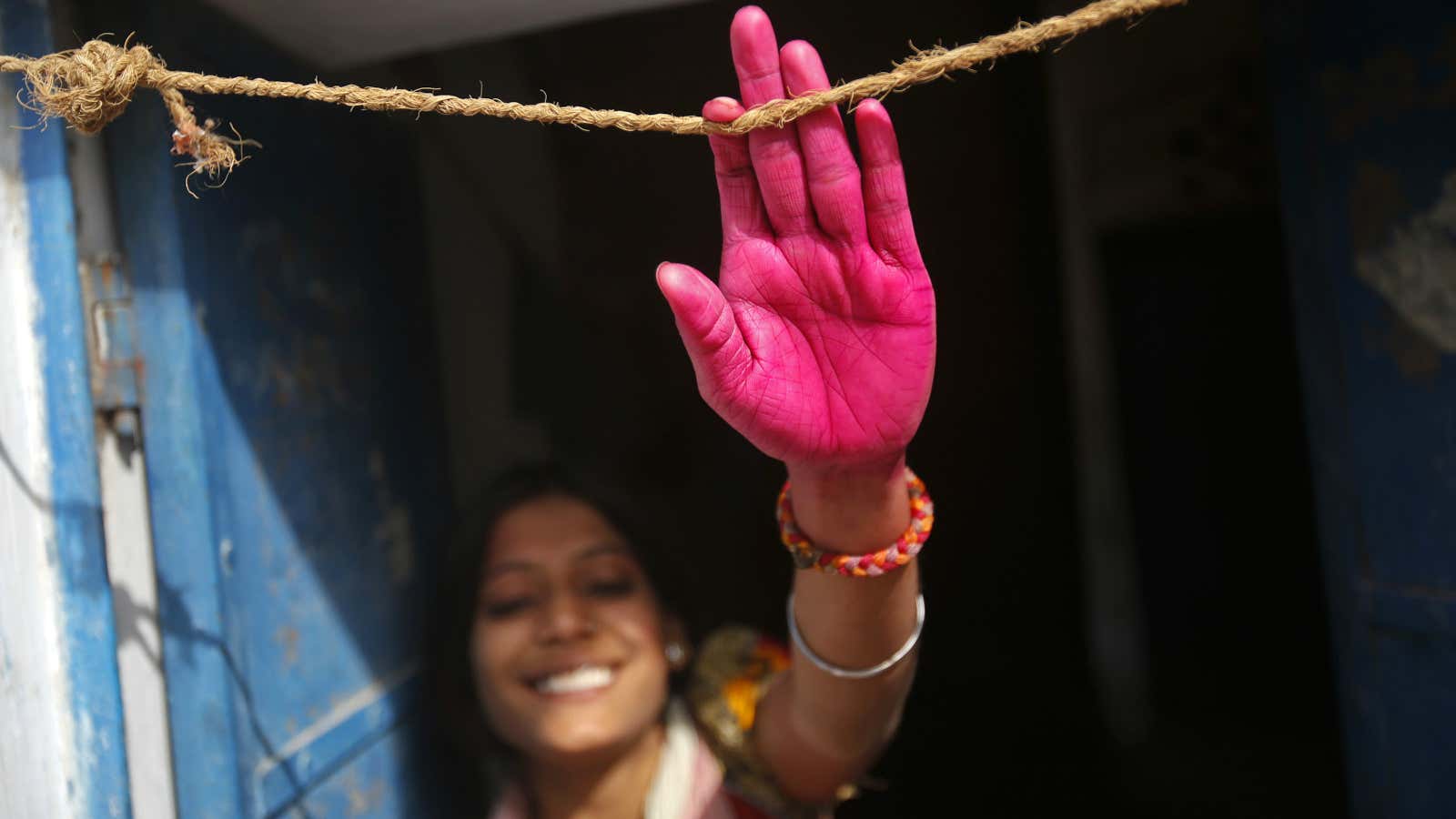Last Friday (Sept. 11), India’s union ministry of health and family welfare installed four vending machines to dispense sanitary napkins in the ladies’ washrooms of its New Delhi office.
In a country where millions of women still do not use sanitary napkins—and rely on old, unhygienic rags for their monthly cycle—initiatives like these are very welcome. Starting from Nirman Bhawan, the health ministry’s workplace in the Indian national capital, the vending machines, dubbed Vendigo, will be installed in schools, colleges, hospitals and offices for women and girls across the country.
But this is how the new machine was unveiled:

Spot the problem? Not a single woman.
A female spokesperson told Quartz that while women attended the inauguration, “the photographer was more keen on clicking the photo of the additional secretary” and his entourage. Almost all the important guests at the event were men, and this particular image is the only one circulated to the media.
India needs vending machines for easier and cheaper availability of sanitary napkins. It is not a common practice in Indian offices to equip the ladies’ washroom with sanitary napkins or tampons. Most women would relate to asking around for a sanitary napkin from other women or running to the nearest chemist shop in the middle of their work in case of an emergency.
And a lot of stigma attached to periods is self-imposed. Women still shy away from talking about this normal female bodily function in public. It is also not uncommon for women to not enter kitchens or temples, refrain from touching certain food items, and sleep in separate rooms during their periods because they believe they are impure while bleeding.
In such a country, it would have been nice to see female health officials cheering this sanitary napkin machine with as much gusto as the men.
Though, perhaps we should cut these men from the health ministry some slack. It is great to see the happy men in such a picture, because in India, according to a recent survey, most men find buying a sanitary napkin more embarrassing than buying a condom.
Fortunately, there are other men taking the cause, too. Anshu Gupta runs Goonj, an NGO that makes cheap sanitary napkins out of waste cloth. In July this year, he won the prestigious Magsaysay Award for his work. Besides Gupta, there are several other male activists fighting menstruation taboos in India.
We welcome your comments at ideas.india@qz.com.
